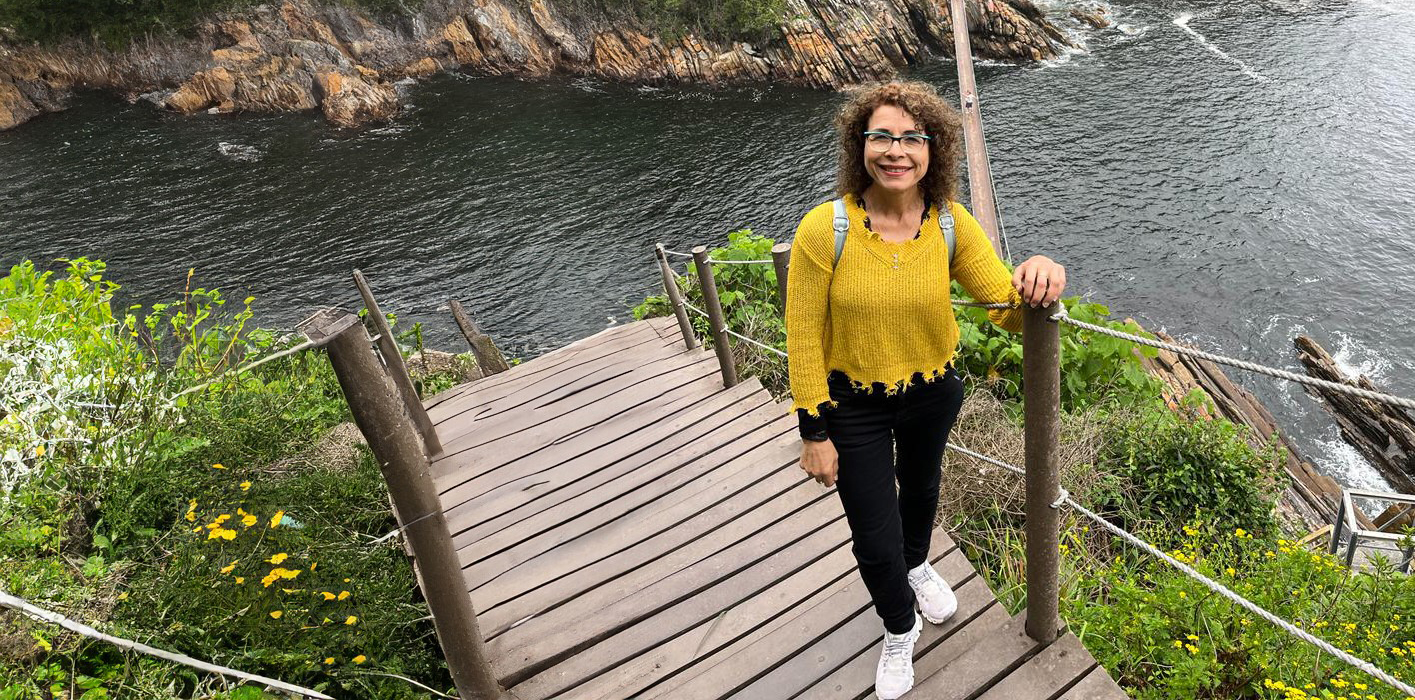In memory of Dr. Marcel Frailich Kaplun
The Weizmann Institute pays tribute to one of its own, murdered during the October 7 attacks
Born in Morocco, Dr. Marcel Frailich Kaplun immigrated to Israel as a young child with her family. She earned her BSc and MSc at Ben-Gurion University of the Negev and began a successful career as a chemistry teacher.
In the late 1990s, she met Dr. Miri Kesner, then a researcher in the Weizmann Institute’s Science Teaching Department, who invited her to take part in special projects in Israeli schools.
"Marcel was the sort of person everyone loves working with—smart, dedicated, the kind who energizes others. We always sought out people like that," Dr. Kesner explains.
Marcel returned to academia to complete a PhD in science teaching at the Weizmann Institute. Her doctoral research, under the guidance of Dr. Kesner and Prof. Avi Hofstein, featured what was at the time a highly innovative idea: enabling 10th grade students to learn key chemistry concepts by means of interactive web-based tools. After earning her PhD in 2007, she continued to work in the Department of Science Teaching and, for a short while, at the Davidson Institute of Science Education.
Also passionate about teacher training, Dr. Frailich Kaplun was a senior member of the Weizmann team that established Professional Learning Communities of science and technology educators in middle schools across Israel, and she was also in charge of the science teaching curriculum at Kaye Academic College of Education, a teacher-training institution in Be’er Sheva. Mentoring generations of science teachers, she was particularly active in promoting science education in the Bedouin community.
In her last 15 years at Weizmann, Dr. Frailich Kaplun took part in developing science and technology textbooks and interactive online materials for middle schools. She created hundreds of activities to make science relevant and interesting, working on a variety of projects, among them the chapters of the New Matmon series of textbooks that deal with materials science, and later PeTeL (Personalized Teaching and Learning), an innovative online platform developed by the Institute’s Department of Science Teaching. She also co-authored scientific papers and book chapters, the latest a chapter on web-based learning for Digital Learning and Teaching in Chemistry, a volume published by the Royal Society of Chemistry in the UK in September 2023.
For 40 years, Dr. Marcel Frailich Kaplun made her home at Kibbutz Be’eri, which would sustain some of the heaviest losses of the western Negev communities targeted by Hamas terrorists on October 7.
As the terrible events of that day unfolded, friends received terrified text messages from Marcel, who had sought shelter in her home’s safe room. “Terrorists have infiltrated Be’eri. / There’s shooting near our house,” reads a message she sent her longtime friend and colleague Dr. Zahava Scherz.
Two days later, a relative spotted Marcel and her husband, Dror Kaplun, being abducted. For a while, there was hope that the couple might have survived the attacks, even if taken hostage. Some friends, believing she had been kidnapped, hoped that as a speaker of Moroccan Arabic, Marcel might be able to communicate with her captors.
However, on October 17, her friends and family received the devastating news that Marcel had been murdered. On December 7, they were informed that her husband, Dror, had also been murdered by Hamas terrorists.
The Weizmann Institute held a memorial service for Dr. Frailich Kaplun on campus. Her son and daughter eulogized her, and her colleagues remembered her unique abilities
"I mourn over a woman who on Saturday morning—while herself in the midst of hell—still texted me to ask about my son, who’d been called up to the army. I weep for your radiant smile that has been extinguished," her departmental colleague Dr. Yael Shwartz said at the ceremony. "We so hoped it would end differently. . . Rest in peace, dear friend."
Dr. Marcel Frailich Kaplun was a beloved and respected educator, and her place will forever remain empty. The Weizmann community is grateful for the years she contributed her expertise and enthusiasm to the field of chemistry teaching research, and extends our deepest condolences to her family and loved ones.

Drs. Zahava Scherz, Marcel Frailich Kaplun, and Yael Shwartz.
(Photo at top provided by the family of Dr. Marcel Frailich Kaplun; photo at bottom provided by Dr. Yael Shwartz).
